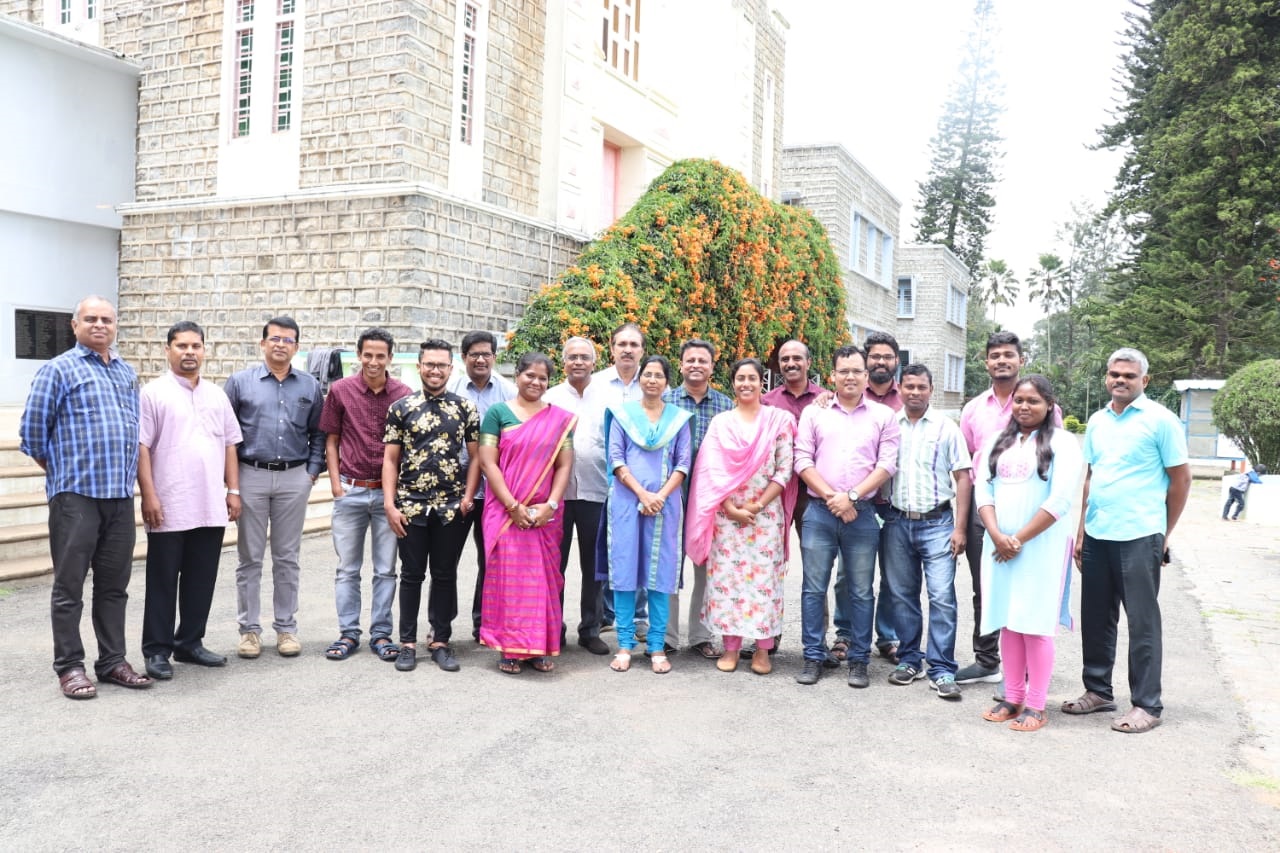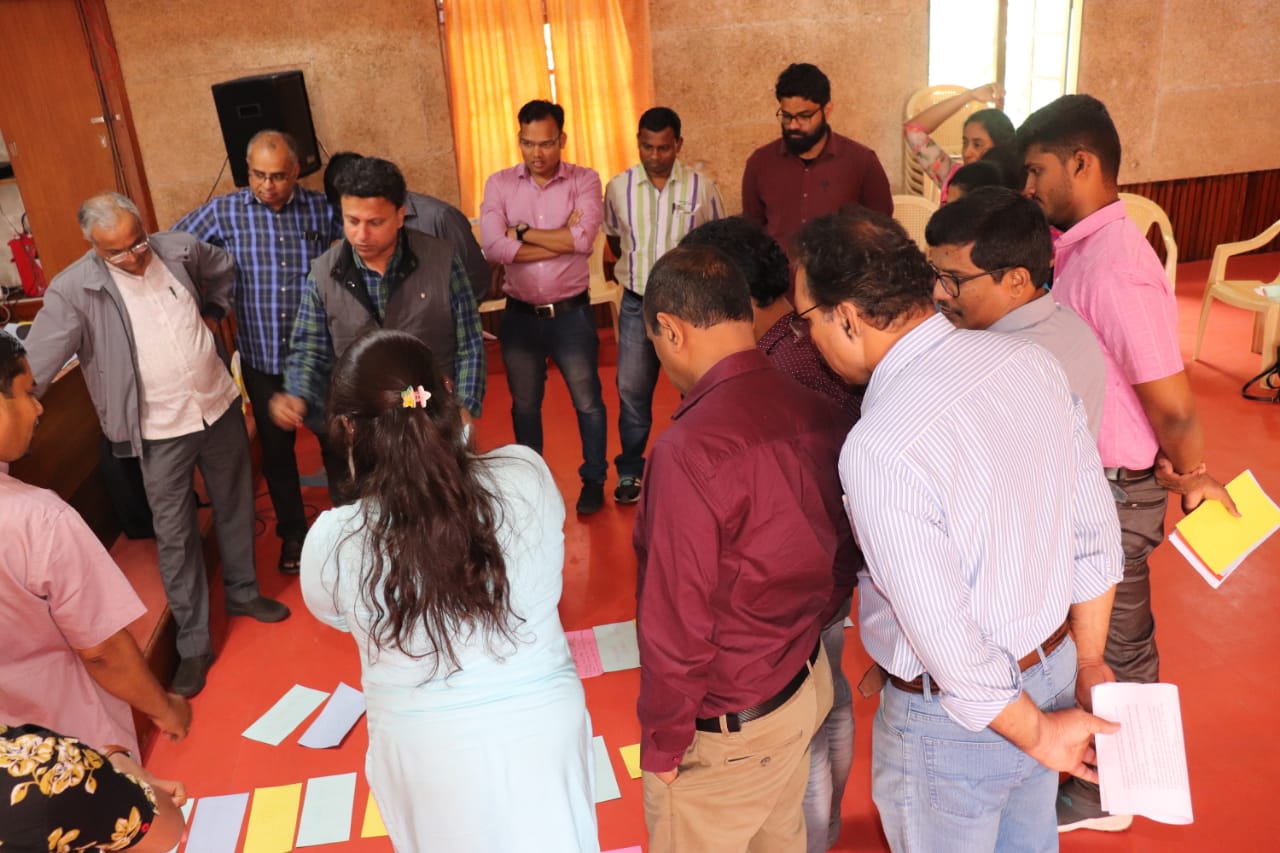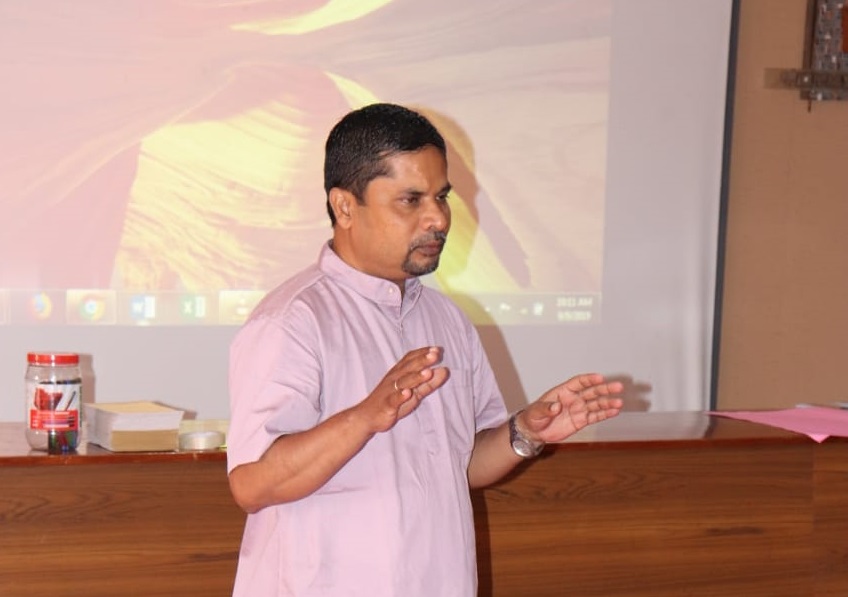Caritas India expertise on Disaster Risk Reduction facilitates Bosconet’s convergence for Paradigm Shift

As a lead agency in Humanitarian Response and Disaster Risk Reduction, on the request of Don Bosco network in India, Caritas India has initiated the process of sharing its expertise through the professional facilitation of Dr. John Arokiaraj, Manager, Caritas India.

The Don Bosco network in India comprises of 11 Planning and Development Organisations (PDOs), each dedicated to the development of the Salesian Provinces they serve. This network is spread across 26 states and 354 NGOs and reaching out to more than 10 lakh people with the major focus areas being empowering young at risk, skills for sustainable living, empowering women and family and green alliance.
Fr.Maran, Director of Cauveri Development Office-PDO of Salesian Trichy Province took the lead in organising two days capacity building training programme on Disaster Management for the Directors and staff members from PDOs of the following Salesian Provinces: Chennai, Trichy, Hyderabad, Bangalore, Mumbai, Panjim and Delhi. It was held on the 9th and 10th of September, 2019 at Yercaud, Tamil Nadu. The overarching idea behind this capacity building initiative was to strengthen the professionalism of PDOs to enable those in need especially the victims of disaster to access resources that are available for every citizen.
The sessions began with the participants being explained on the various terminologies in Disaster Management to share a common understanding with aid agencies. It was followed with the discussion on humanitarian imperative, benefits and opportunities of Sphere handbook, minimum standards, key indicators, and Core Humanitarian Standards,
Input session on Disaster Management Cycle, sectoral response, and cross-cutting themes, methods and techniques in participatory needs assessment, authentication of data through triangulation and data analysis tools enabled the participants to realise the nuances and significance of DRR in our day to day life which can go along with development work simultaneously.
The trajectory of Caritas India shifts in linking relief and rehabilitation with development, ecosystem-based disaster risk reduction, urban disaster disk reduction, evolving school disaster management plan, community participation and strengthening co-ordination mechanisms were explained to the participants in detail with examples.

The participants were engaged in group work to analyse their past experiences in pre, during and post-disaster responses. As and when they made the presentations, the techniques of preparing Situational Report, rapid and detailed needs assessment, the importance of personal observation, quick decision making, understanding on the local cultural practices, task forces’ responsibilities, etc were captured by the floor. This has given new insights to Mr.Chandrasekar from Hyderabad who said: “ I understand that DRR is investing more on the preparatory work with community involvement and Aid agency preparing itself with data on vulnerabilities, contingency fund, and right targeting.”
Fr. Maran continued “ Normally we decide for the community. Now, we understand the importance of making needs assessment using scientific tools. We are appreciative of Caritas India’s response mechanism seen in the Ooty floods (2019), Cyclone Gaja (2018), Kodagu Floods (2018), Cyclone Vardah (2016) and Chennai floods (2015). The clear damage assessment, changing priorities and disaggregated data of the affected are new learnings for us. We also learned the sphere standards in an easy manner through the quiz conducted”.
“I understand that disaster preparedness is proper planning, mobilising communities and resources and having clear action plan” said Ms.Sangeetha.
It was an opportunity for me to know the ecosystem of development and DRR and how these approaches can converge and complement each other” said Fr.Noel Maddhiichetty, Director of Bosconet. He also said that when we use social media during disaster and mobilise support in excess of what we project, let us invest that amount for disaster preparedness and other development activities. It is our responsibility to be accountable to our well-wishers” he concluded.

In his concluding remarks Dr.John Arokiaraj said “ It’s Time to be proactive; Let us invest on communities, facilitate them to be prepared so that disasters are prevented or mitigated rather than repenting after the disaster and wasting resources only on repairing and reconstructing.”
Upcoming News
Empowering the invisible workforce through holistic migrant welfare approach
Internal migration forms the backbone of India’s workforce, driving the growth of urban centers and...
LEARN MORENATURE-BASED SOLUTIONS: RECONNECTING COMMUNITIES WITH THE WISDOM OF NATURE
As climate threats intensify across India, Nature-Based Solutions (NbS) are emerging as powerful community-rooted strategies...
LEARN MOREStrengthening Humanitarian Expertise Through DG ECHO Training
Caritas India recently participated in a high-level capacity-building training organized by the Directorate-General for European...
LEARN MORE



 91 -11 - 2336 3390
91 -11 - 2336 3390  director@caritasindia.org
director@caritasindia.org 